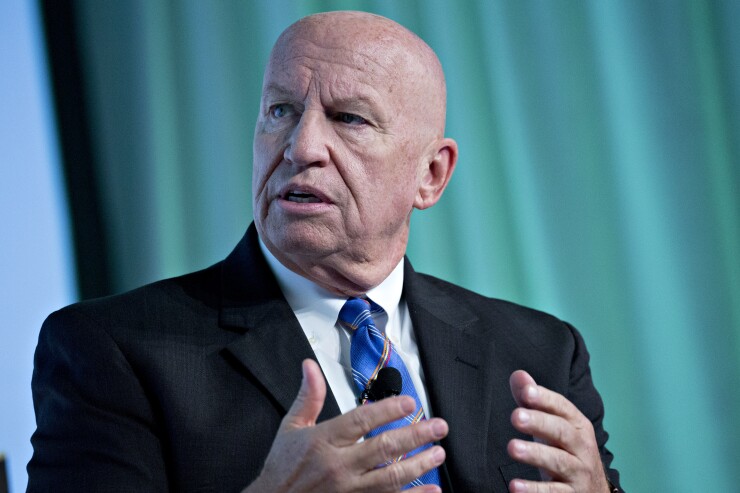WASHINGTON – House Ways and Means Committee Chair Rep. Kevin Brady released a framework for Tax Reform 2.0 on Tuesday, causing municipal market participants to worry once again that private activity bonds might be legislatively threatened at some point in the future.
The House, led by Brady, R-Texas, and the tax committee, proposed halting tax-exempt PABs last year, but the Senate prevailed in the tax bill that was enacted in December and PABs were left untouched.

Brady’s framework for a follow-on tax reform bill doesn’t contain any muni provisions and sources agree there is no chance that it can be passed this year.
But the plan also doesn’t contain any pay-fors -- provisions that would raise revenues to pay for the tax law changes. And the tax community sees it as a starting point for legislation that could be passed in the future.
“Everything that was on the table last year that didn’t get in the tax bill will probably also be on the table again this year,” said one source who did not want to be identified.
The plan will galvanize muni market groups to step up their lobbying of lawmakers to support munis.
“We always need to ensure that they do no harm to the municipal bond interest exemption – particularly when pay-fors are identified,” said another market participant.
The plan was released days before the House takes its traditional August recess. But Brady has suggested that a House vote on the bill could come in the fall, before the mid-term elections.
The main piece of the plan, designed to attract voters, is the permanent extension of the 2017 tax law’s cuts in the rates for individuals and some of the benefits that were afforded them. The lower individual tax rates, doubled standard deduction to $24,000, and child tax credit that were part of the 2017 bill are due to expire in 2025.
There are two other components of the plan and Brady has suggested they could each move separately through Congress.
One would increase incentives for family savings, such as by creating Universal Savings Accounts, expanding 529 education accounts, and allowing families to access their retirement accounts penalty-free to help pay for the costs of new babies -- born or adopted.
The other would spur new business investment by allowing new businesses to write off more initial startup costs and removing barriers to growth.
Democrats are already criticizing the plan, which Brady hopes House Republicans will talk up to voters during the August recess.
“Republicans’ first tax bill exposed the party’s real priorities: big corporations and people at the top,” said Rep. Richard Neal from Massachusetts, the committee’s top Democrat. “Wages aren’t rising, workers are getting laid off, and average families aren’t feeling any relief.”
“This new framework is more of the same – it rewards the well-off and well-connected, fails to reinstate the state and local tax deduction, and leaves the middle class behind,” Neal said. “All the while, Republicans are saddling future generations with trillions of dollars of debt and setting the stage to cut programs like Medicare and Social Security. “
Brady’s plan has no chance of being passed this year, according to tax experts. The tax bill last year was passed within a few weeks without votes from Democrats because it was part of a reconciliation package that allowed a majority, rather than two-thirds of Senate members, to pass the bill.
This new plan could not be part of a reconciliation package because it would continue to raise revenues after 10 years. So the Senate leadership would need nine Democrats to vote for a second tax bill, as well as every Republican.
Political wonks are predicting the Senate could pick up some Republicans in the next election, even if the House losses its Republican majority.





